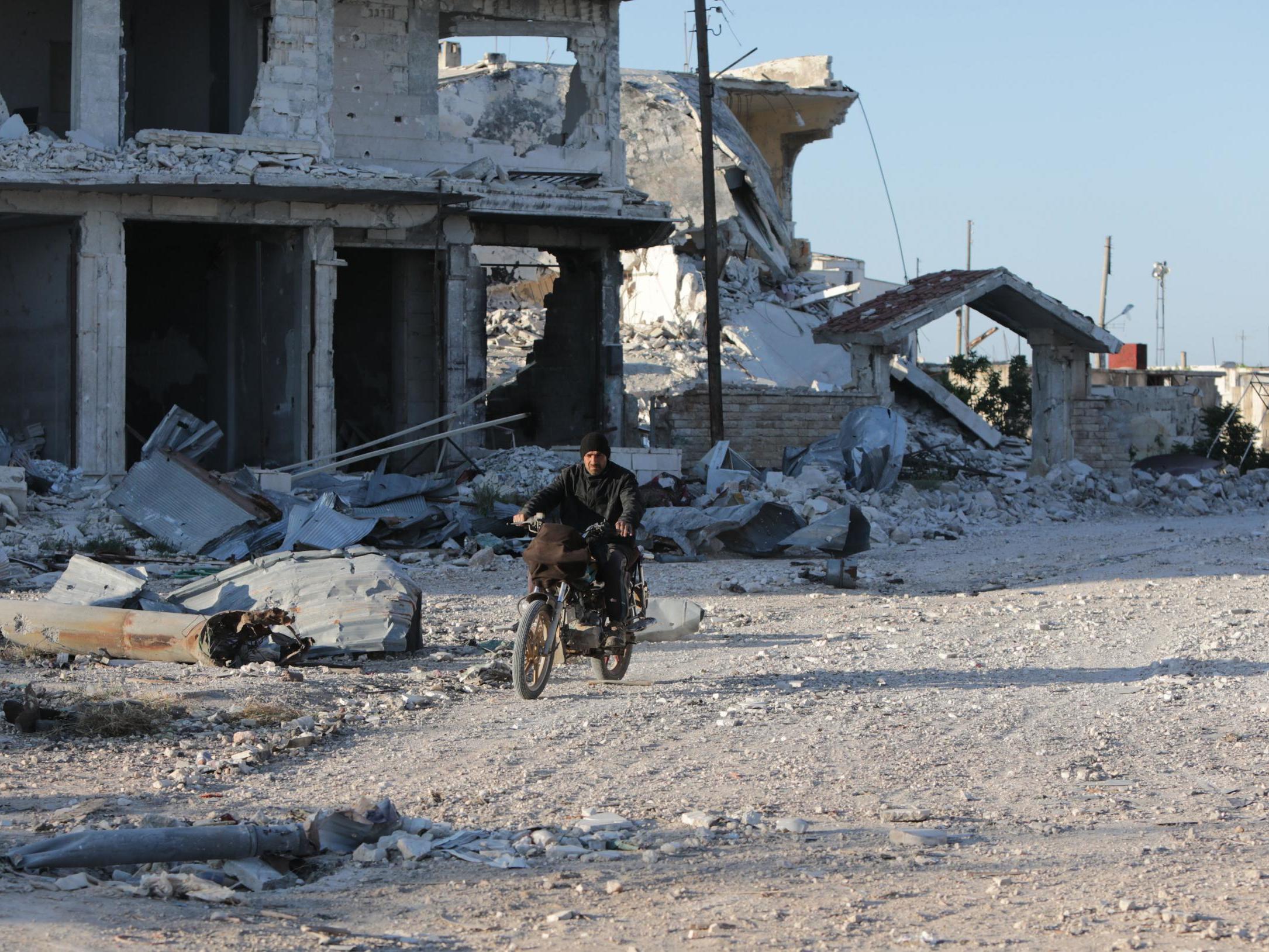Coronavirus is the next humanitarian disaster for war-torn Idlib
Deliberate and targeted bombings of health facilities and hospitals have brought Idlib’s healthcare system to its knees and the coronavirus outbreak will finish it off, writes Othman Moqbel


Prior to the Covid-19 crisis, Idlib in Syria was the world’s worst humanitarian emergency. Three months ago we saw people freezing to death in open fields as they fled from the Idlib crisis that has been going on for 13 months. Like winter, war and economic catastrophe, Covid-19 is just another enemy humanitarians must battle to keep people in Syria alive.
As developed Western nations struggle to fight the global pandemic, the impending coronavirus outbreak hangs like the sword of Damocles over the people of war-torn Idlib. For NGOs, it’s not a case of preparing for if, it’s a case of preparing for when Covid-19 strikes. In fact, we cannot be sure if coronavirus hasn’t already arrived, due to lack of transparency and testing capacity. What we do know for certain is that when it does arrive, the impact will be devastating.
There has already been confirmed cases and deaths in the government-held south and the largely Kurdish-controlled north west. Rebel-held Idlib is surely next, and one of the least prepared areas of the globe to deal with it. We fear that there will be an explosion of cases in Idlib, due to 3.5 million people living in a confined area, with poor access to clean water and 1 million people homeless and crowded into displacement camps or other temporary shelters. The widely accepted health advice to prevent the spread of Covid-19 is almost impossible to follow in Syria’s north west province of Idlib. How can someone who is homeless and living in a tent with another family quarantine themselves? How can someone wash their hands regularly when they have barely enough water to drink?
There are no medical professionals in Idlib who feel that the province can cope with a Covid-19 outbreak. For a population of 3.5 million, there are just 600 doctors, 90 ventilators, 2,000 hospital beds and 20 intensive care beds. More than 80 of Idlib’s hospitals are out of service due to being attacked. Almost a third – 27 per cent – of Syrians are disabled, mainly due to airstrikes and shelling. According to Doctors Without Borders, 35 per cent of all of their patients already suffer from respiratory infection, meaning catching Covid-19 could quickly lead to complications.
Deliberate and targeted bombings of health facilities and hospitals have brought Idlib’s healthcare system to its knees and the coronavirus outbreak will finish it off. Let us not forget that, whilst in the UK we applaud our healthcare workers, in Idlib they have been deliberately murdered during this conflict. My mind is drawn to a case highlighted by Charles Lister from the Middle East Institute where, after an airstrike on a medical facility in Maarat Hurmah killed an ambulance driver and a paramedic, minutes later a second attack on the same site killed a White Helmets volunteer who had arrived to help rescue people affected. Lister wrote “This is called a ‘double tap’. It’s designed specifically to target rescue workers.”
In Idlib there is no internationally recognised or fully functioning government. Therefore, other countries that usually provide aid have turned their efforts inwards. The Idlib health directorate has formed a taskforce in order to prevent and mitigate a Covid-19 outbreak, but thus far have been unable to secure any of the $33m funding they require.
The people are dependent on NGOs for their health care and other humanitarian programmes that you would normally deem as public services. For the 35,000 children that Syria Relief provide education to, we are having to do so through distance learning. However, many families to not have electricity, let alone devices which have internet capabilities. Yet we cannot stop education entirely as we are finding that children are at a greater risk of potential harm, abuse and exploitation when schools are closed or they are separated from their caregivers. Instances of gender-based violence are also increasing, but these trends were already rising due to the Idlib conflict: the Covid-19 crisis has just caused a steeper upsurge.
Syrians who were already struggling to eat have found food even more expensive and harder to access due to the increasing food prices and the disruption of the food supply change. With limited resources and an ever-deteriorating economy, the people of Idlib are once again being pushed closer to starvation. Covid-19 kills people and it attacks the core of the real economy – trade, supply chains, businesses, jobs. The imports that north west Syria relies on are facing restrictions. Work is scarce yet people are too poor to refuse work if an opportunity arises.
NGOs are having to make incredibly difficult decisions. Whether to stop work and reduce the risk of bringing infection in from abroad, or continuing to work and help fight the seemingly inevitable outbreak. Whether our healthcare workers should be concentrating on fighting the coronavirus or treating malnutrition.
We’ve recently opened two new hospitals in northern Syria and we are attempting to raise $15m to fight Covid-19, however, we believe that Idlib’s fight against coronavirus will be going on well into 2021 and its impact will be as devastating as the fighting.
Othman Moqbel is the chief executive of Syria Relief
Join our commenting forum
Join thought-provoking conversations, follow other Independent readers and see their replies
0Comments